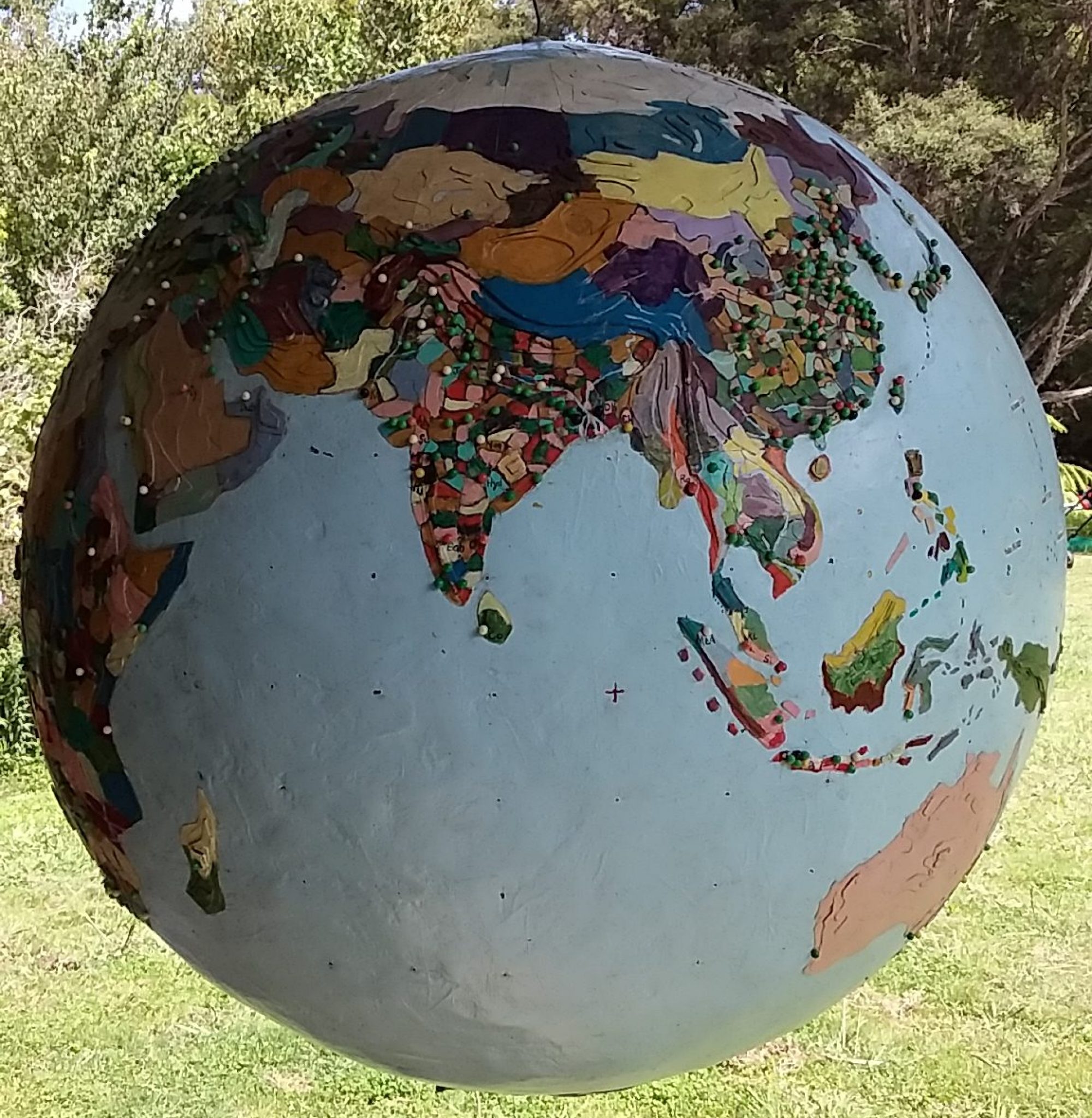Millisphere (abstract noun). A discrete region of approximately one-thousandth of the total world population – around seven million people. A lens through which to examine human geography.
This month I ran into a former Whanganui man who had just emerged from the millisphere of Central Visaya (pop six million) in the Philippines (pop 101 million).
My Maori acquaintance had worked in Australia before traveling in Asia and settling down in Lapu Lapu, Mactau Island – connected by a causeway to the island of Cebu in the Visaya island group. The Mactau-Cebu airport is the busiest in the Philippines after Manila.
Nicknamed “Ceboom”, Cebu is one of the more developed parts of Philippines and is estimated to have over half a million call-centre operators. My contact had run into a spot of “competition” there trying to start a call-centre and had to beat a hasty retreat. It’s the sort of place where, “if you don’t have a gun, you’d better go out and get one,” he told me.
Lapu Lapu is named after the 16th century ruler of Mactau who is remembered as the “first native to resist colonisation.” Lapu Lapu’s warriors, in 1521, had killed Magellan in the surf there. Magellan, after crossing the Pacific was the first European to land in the Philippines and had presented an image of the Holy Child to the ruler of Cebu. The “Santo Nino de Cebu” is still the centre of an annual Catholic festival in Cebu.
The Philippines is a Christian country with only about 5% Muslim (Moro), mostly in Mindanao in the south. Many of the Moro have been displaced from their original lands and have moved to the slums of Manila, Cebu and Davao (the home city of the president of the Philippines, Rodrigo Duterte).
Duterte’s father was a Chinese/Filipino from Cebu and his mother is of Moro descent.
In 2013 Duterte was elected mayor of the Mindanao capital, Davao, which in 2016 had the highest murder rate and second highest rape rate and is one of the top five areas for child prostitution and sex tourism in the Philippines. Ironically, in 2009, Duterte had promoted the empowerment of Filipina women with his “Magna Carta for women.”
While Duterte was mayor of Davao, 1400 drug users, petty criminals and street children were summarily executed by police and vigilantes. “The man is barking mad and has a history of violence,” my contact said. Duterte put a ban on fireworks, smoking in public places and the sale of alcohol between 1am and 8am. He reduced the speed limit in Davao and made all malls install high definition CCTVs at all entrances and exits.
In 2016 Duterte campaigned for the presidency on “putting drug dealers in funeral parlors not prisons” and getting rid of crime and corruption in government and the police. “In Cebu the police carry two guns, one to leave with the body to look like they were shot at,” my contact told me. “The wider population is fantastic though” he thought. Many of the people were very poor with barely enough money for food and some were ill-nourished and the infrastructure was poor. There were power “brown-outs” and sewage spills in the street, he told me.
Since Duterte became the president, Philippines police have killed 3500 “drug personalities” and thousands more have been killed in unexplained circumstances. Last week after one of the bloodiest nights in the Philippines war on drugs Duterte said “I will kill another thirty-two every day, then maybe we can reduce what ails this country.”
Indonesia is following the Philippines example with 60 killings of drug dealers so far this year compared with 18 in 2016 and Donald Trump praised Duterte for “doing an unbelievable job in his anti-narcotics campaign.”
Duterte admitted that police were “corrupt to the core” but has vowed to issue “a thousand pardons a day” to protect police who commit human rights abuses and to issue a presidential pardon to himself for mass murder at the end of his six year term.
A more accurate translation from Hebrew of “thou shalt not kill,” apparently is “you shall not murder”. In the Philippines Rodrigo “the punisher” Duterte ultimately decides what is killing and what is murder.
